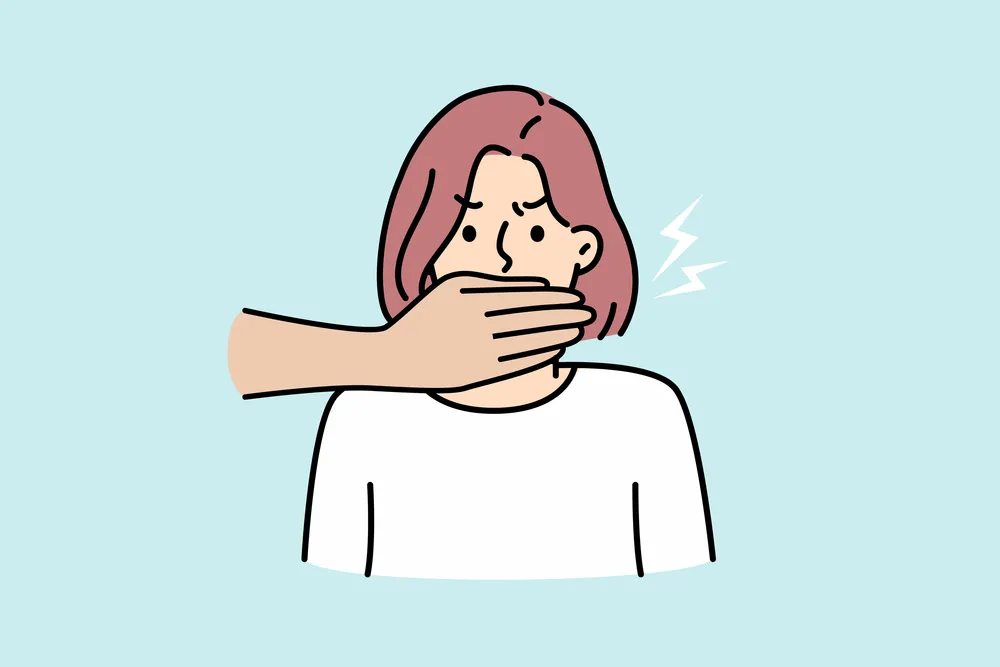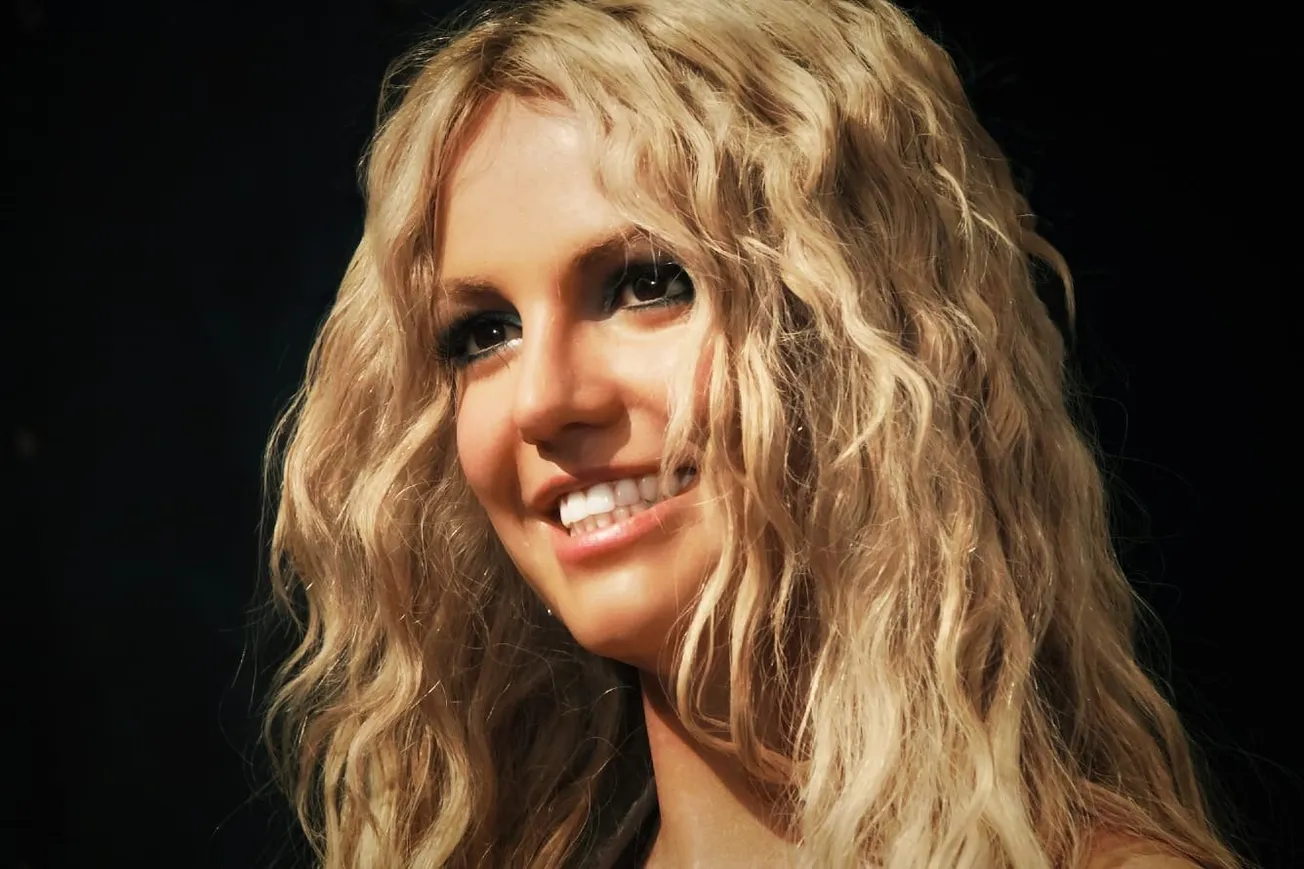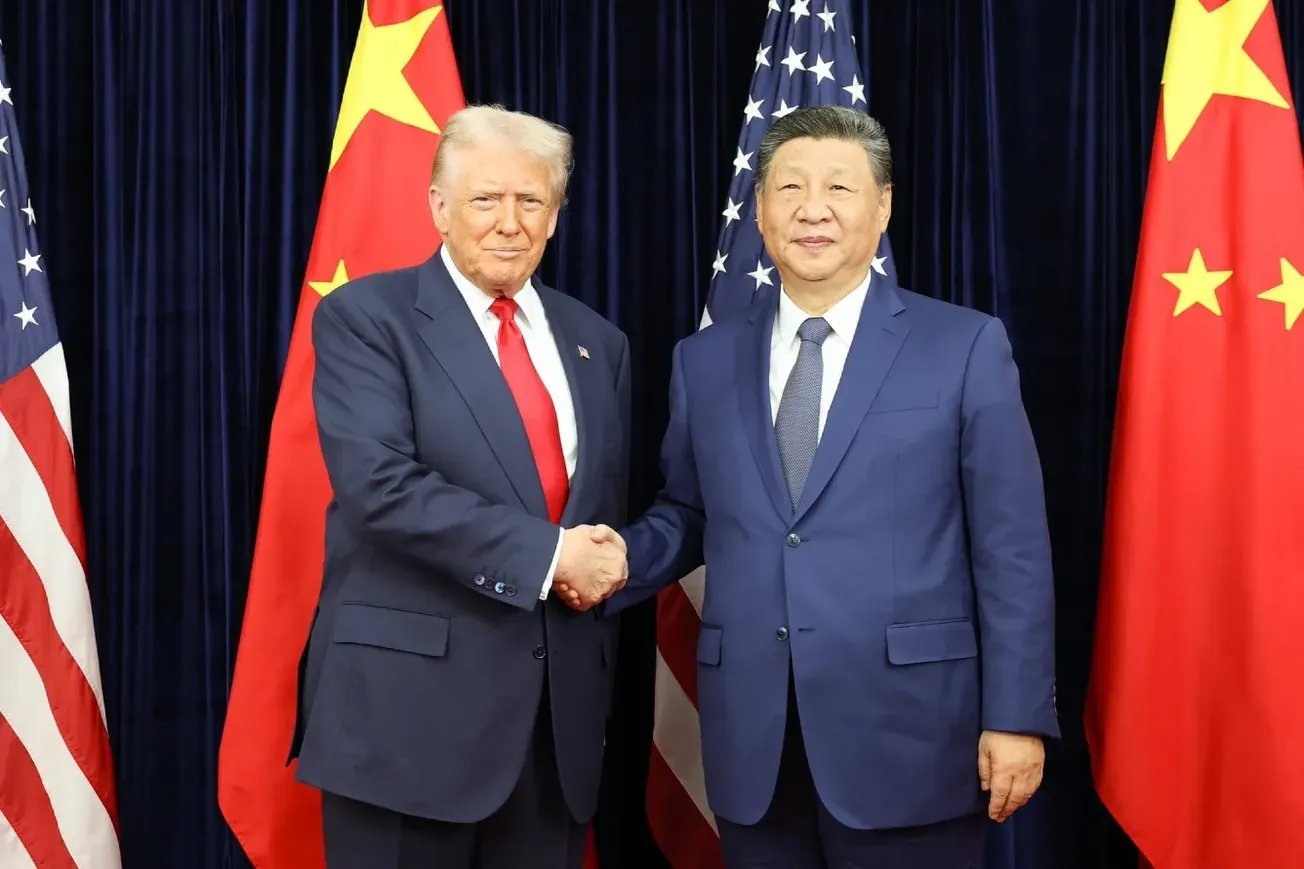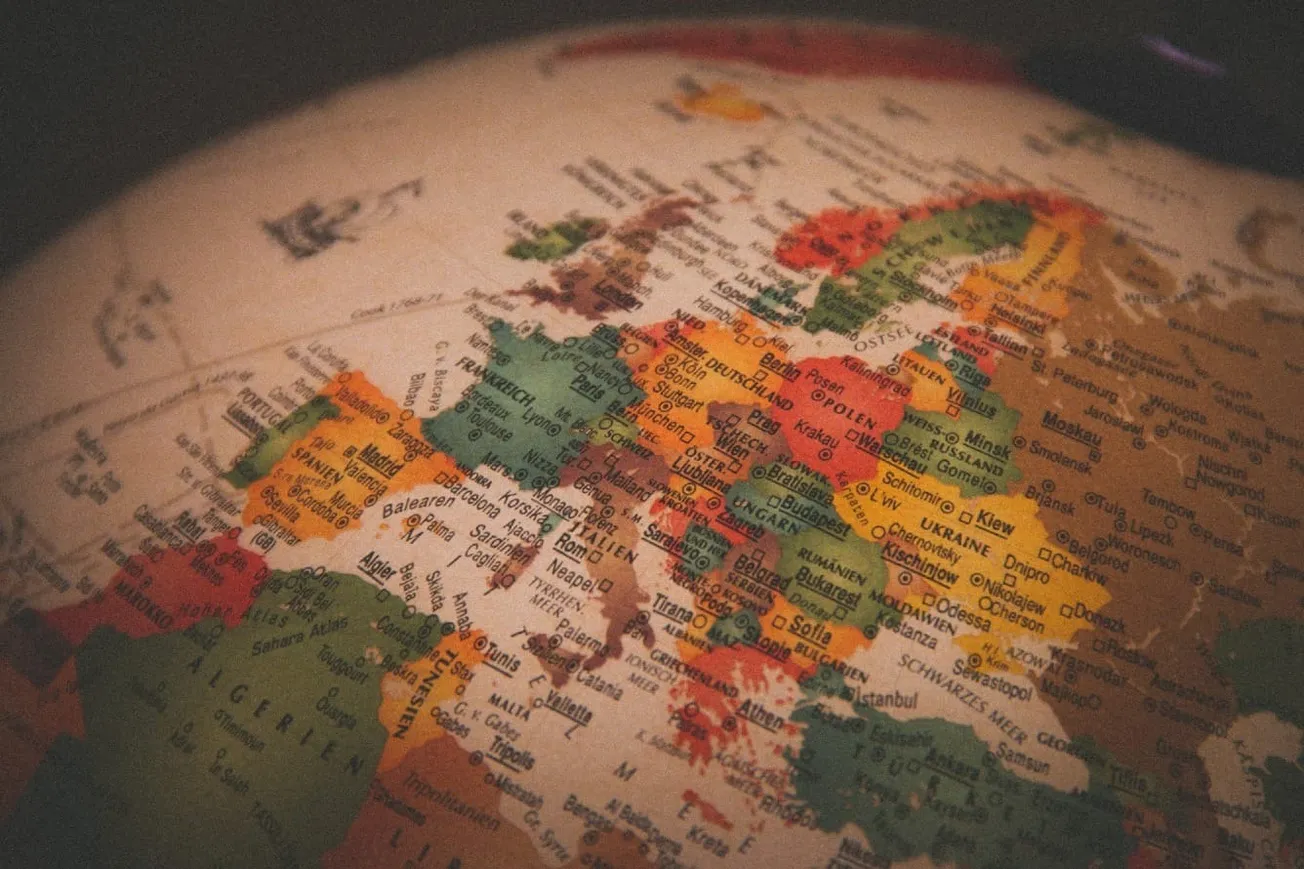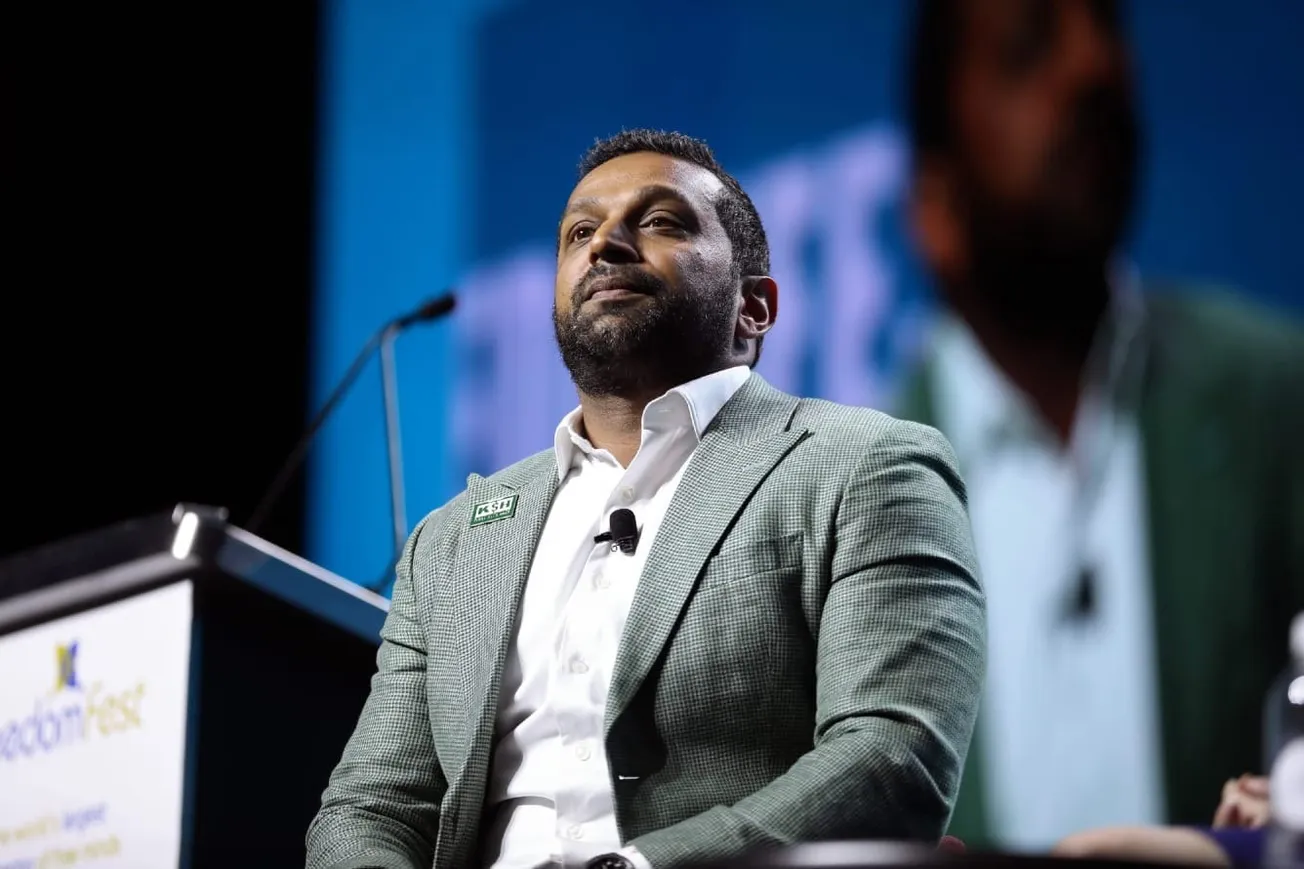The press, or more broadly, the media, is regarded as the fourth pillar of democracy. By disseminating information, providing a public forum for discussions and debates, and reporting on the activities of the government, it creates an informed and engaged citizenry. The media, collectively, acts as a watchdog, a necessary check in a functioning democracy.
But, those in power and other vested interests are increasingly gagging the disseminator of information. The recently released 2023 World Press Freedom Index presents a grim picture. According to the report published on May 3, World Press Freedom Day, "the situation is "very serious" in 31 countries, "difficult" in 42, "problematic" in 55, and "good" or "satisfactory" in 52 countries."
Norway, Ireland, and Denmark scored the first three places on the list for press freedom. China (179) and North Korea (180), well known for their repressive, authoritarian regimes, comprised the bottom of the index.
It is not just in Asia where reporters are facing trouble. Journalists and reporters are increasingly coming under attack all around the world. In 2022, 67 media workers were killed in the line of duty. There has been a 50% increase in the killing of media personnel in the last year.
Governments affect legislation under various heads, including national security, defamation, cybercrime, sedition, and anti-terror laws. Such laws often inhibit the ability of journalists to report truthfully or critique the establishment.
According to the Committee to Protect Journalists (CPJ) annual prison census, a record number - 363 journalists – were serving imprisonment across the globe as of December 2022. Iran, China, Myanmar, Turkey, and Belarus were the top countries sending press personnel to prison. Here again, China held the number one spot, with 99 journalists imprisoned, with an additional 11 media persons held in Hong Kong.
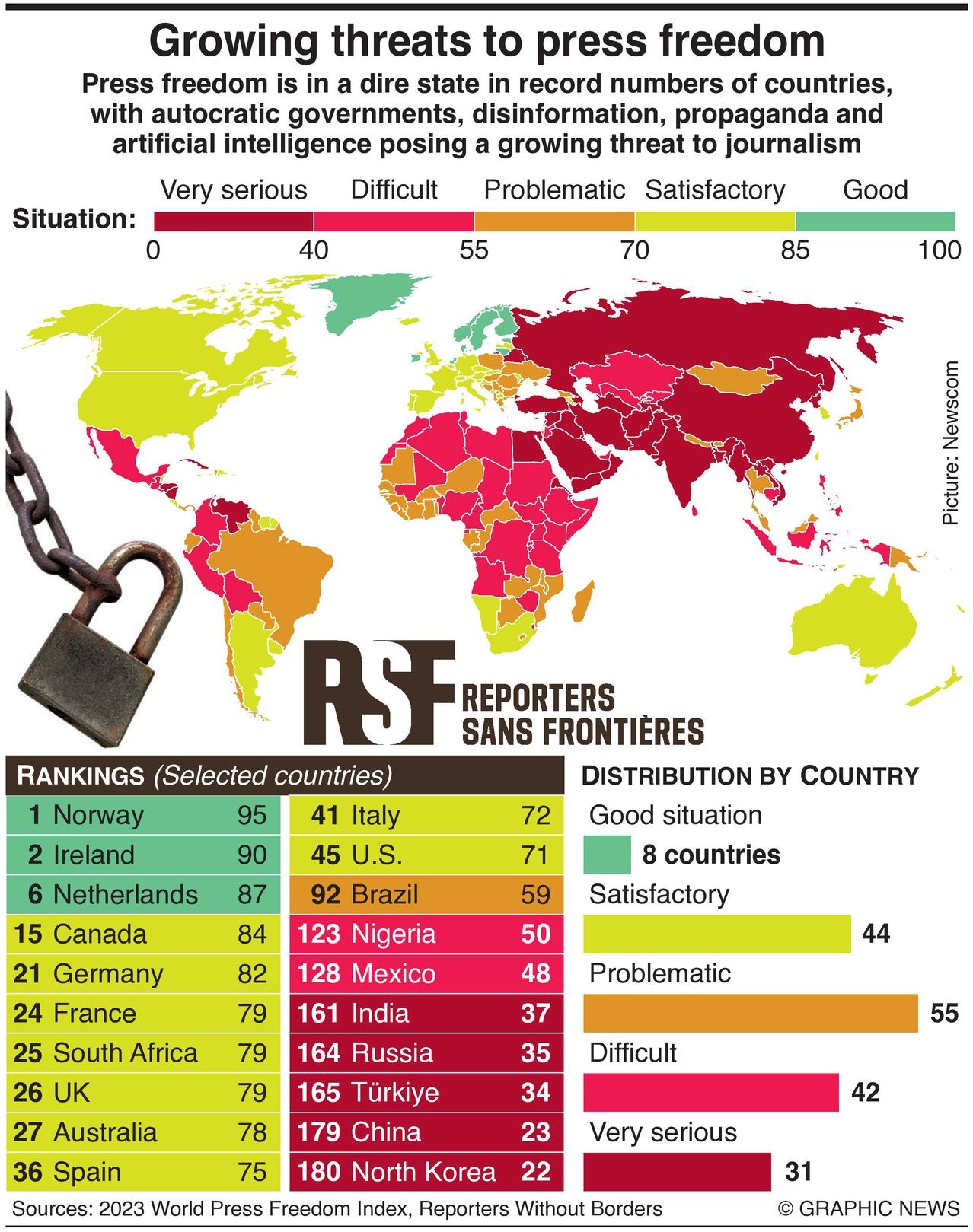
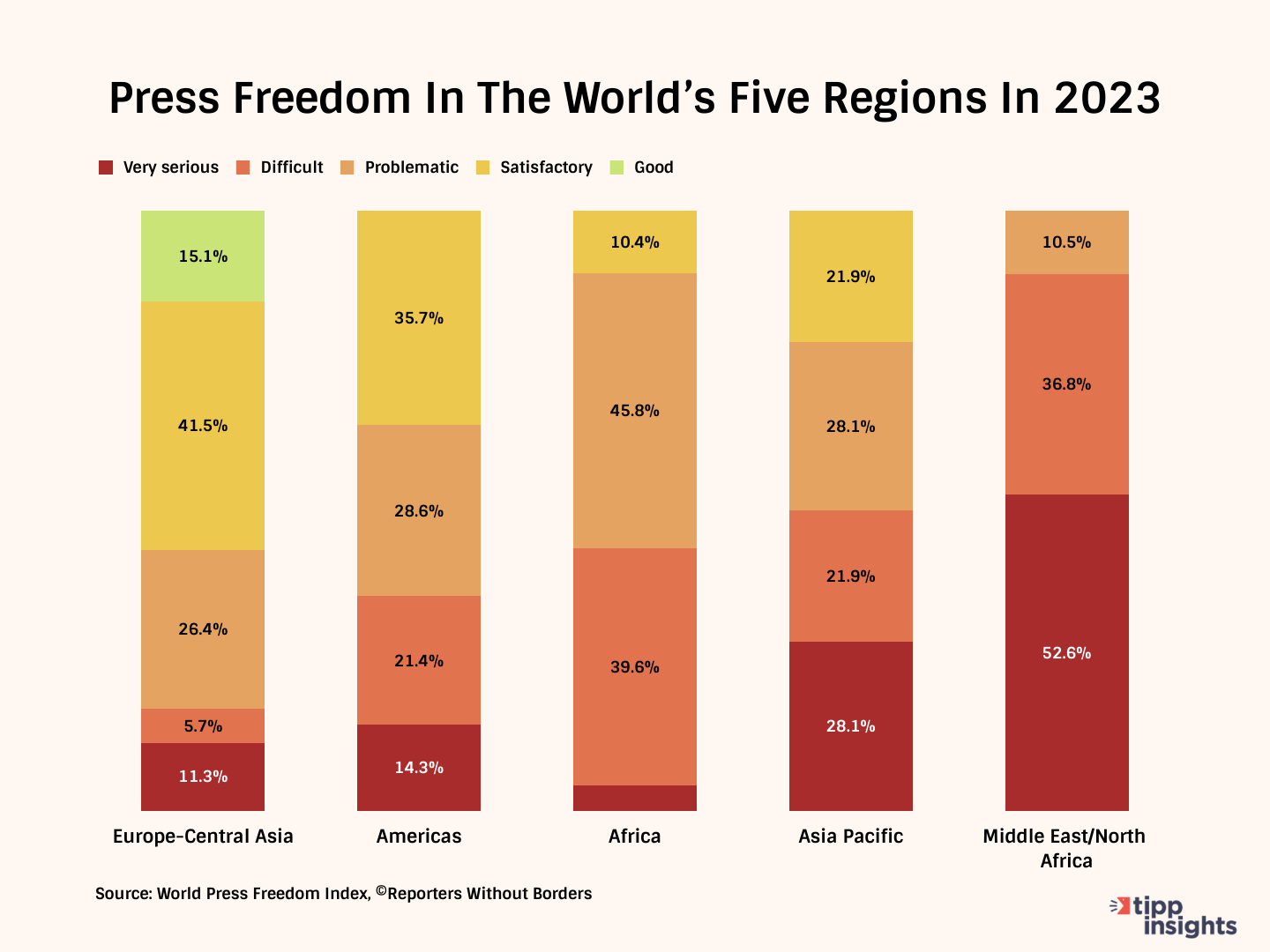
According to Christophe Deloire, Secretary-General of Reporters without Borders, "The World Press Freedom Index shows enormous volatility in situations, with major rises and falls and unprecedented changes, such as Brazil's 18-place rise and Senegal's 31-place fall. This instability is the result of increased aggressiveness on the part of the authorities in many countries and growing animosity towards journalists on social media and in the physical world. The volatility is also the consequence of growth in the fake content industry, which produces and distributes disinformation and provides the tools for manufacturing it."
The massive changes in the media industry are also playing a role in the curtailing of press freedom. Bankruptcy woes and the forced closure of local news outlets are reshaping the news culture in many parts of the world. The consolidation of newspapers, channels, and online portals in the hand of a few mega-corporations is changing the narrative on crucial issues.
While repressive governments have always strived to gag or censor the press, the emergence of social media and online platforms as mainstream sources of news and information poses a different threat. Such platforms are constantly being used to push fake news, disinformation, and propaganda disguised as information. Hate speech, intimidation, and harassment against those who report the truth and expose the actions of those in power are common.
Based on the UNESCO General Conference recommendation, the UN General Assembly declared May 3rd World Press Freedom Day in 1993. The day marks the importance of press freedom. It reminds governments of their duty to respect and uphold the right to freedom of expression enshrined in Article 19 of the Universal Declaration of Human Rights. Three decades later, UNESCO is preparing to publish guidelines on the moderation and selection of online content.
The proliferation of online media platforms has only made reporting more dangerous. Sensationalism often triumphs over truth, and what goes 'viral' is what gets viewed or read most often.
Despite increasing online access and presence for citizens in most parts of the world, UNESCO reports that "85% of the world's population experienced the downsizing of their freedom in the last five years." With freedom of expression under criminal codes in more than 150 countries, the press cannot perform their work independently and without interference.
Press freedom is a citizen's freedom. Gagging the media is akin to muffling the truth.
Want to support our work? Become a paid subscriber!

